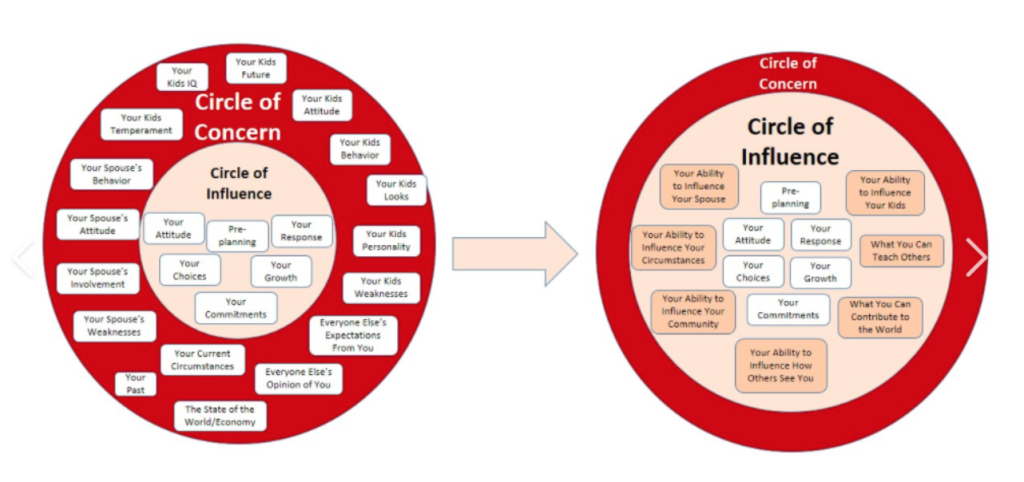In the viral video The Race of Life, you see a group of student-athletes that are challenged to run a race in which the winner will receive a $100 bill.
The participants who grew up with various privileges were able to move their starting point forward and run a shorter race. Some of the privileges were: have grown up with married parents, had food on the table on a daily basis, attended a private school, and did not have to help with the bills.
By the time the participants ran in the ‘race of life,’ the minorities who were starting behind had no chance to win the $100.
After watching this video, I began asking myself, “I have many privileges. So what am I to do with them?”
I have clear advantages that others do not. I am a male caucasian who went to a private liberal arts school, graduated from a Southern Baptist seminary, and now lead a private Classical Christian school in one of the most affluent communities in the Midwest.
For myself and others, I would like to provide some biblical thought with the aim of promoting biblical living as it relates to privilege. First, I will provide a general background on privilege and then present a twofold offensive strategy: community-awareness and intentional privilege investment.
General Background: What is White Privilege?
White privilege is defined as “inherent advantages possessed by a white person on the basis of their race in a society characterized by racial inequality and injustice.”
An example of privilege is in the Race of Life video. Privileges are simply head-starts that we have on others. Here are three head-starts you most likely have if you are caucasian:
- never discriminated against on the basis of race by law enforcement
- never discriminated against by an employer in hiring or compensation
- never have had their intelligence pre-judged based upon their appearance.
Some caucasian folks in positions of authority do not give a fair shake to minorities, but they do give a fair shake to those who are just like them. Some folks are never even given a chance to make a first impression because some uncontrollable factor has already excluded them from the game.
An unbiblical response to this video would be to lack gratitude for our privileges and be made to feel guilty for having money, a home, family traditions, cultural heritage, and strong education. 1 Thessalonians 5:16-18 says, “Rejoice always, pray without ceasing, give thanks in all circumstances; for this is the will of God in Christ Jesus for you.”
This is God’s will for His children whether they have head-starts or not. In the chapter before, Paul writes, “God’s will for your life is your sanctification.” So no matter the hand you are dealt with when you entered the race of life, God expects you to exercise gratitude, prayerfulness, and increasingly godly character over the race of your life.
An unbiblical response to this would be to pretend I did not have privileges or to feel ashamed for having privileges. It is all worth considering that the video does not accurately represent the way that God rewards His children– the standard is not their finish line but their obedience and faithfulness.
1 Samuel 16:7 says, “The LORD does not look at the things people look at. People look at the outward appearance, but the LORD looks at the heart.” God is far more concerned about our character than He is with our career position. The ‘finish lines’ of the world are not the ‘finish lines’ of Heaven.
So an unbiblical response would to fail to take note of the fact that the Race of Life video is not necessarily how God hands out $100 bills!
Community Awareness
While it is certainly helpful to be self-aware, that is not enough for anyone that sees the Bible as her governing and grounding authority for life and practice.
In the parable of the Good Samaritan, Jesus asks in Luke 10:36-37, “Which of these three, do you think, proved to be a neighbor to the man who fell among the robbers?” He said, “The one who showed him mercy.” And Jesus said to him, “You go, and do likewise.”
If it has been a minute since you have reflected on the Good Samaritan, go back and read Luke 10:25-37. You will come away thinking, “Wow, there is no such thing as a compassion-less Christian.”
Jesus says in Matthew 5:7, “Blessed are the merciful, for they shall receive mercy.” All over Scripture, you see example after example of an impulse that resounds in the Christian heart to share the mercy they have received from the Lord. The two most oft-repeated values in the New Testament are love and humility. A proud and love-less Christian is not a thing.
So with regard to the video, we ought to first say that our ‘heart of mercy’ should pulsate when we see people that are not given many of the opportunities that we have had. Those with head-starts ought to have mercy for those who do not.
Many things in life are crooked and will not be straightened out for a long time. We live in the valley of the shadow of death where men kill each other and people steal from those with less power. We ought to have a heart of mercy that hates the way people are negatively impacted by disadvantages.
It is also wise to keep in mind the difference between our circle of influence and our circle of concern.

The phrase ‘think globally, act locally’ connects with the Circle of Concern and Circle of Influence. This diagram encourages us to take responsibility for my 20 square feet and trust that my circle of influence will increase. However, if we focus on many things that we cannot control, we actually lose sight of that which I can control.
Our plans, our attitudes, our choices, and our commitments are always within our spheres of influence. Whether we are at the front of the pack with two parents, private education, and food on the table, or we are one who is far behind due to fatherlessness and poverty, we have control over our attitudes and the choices that we will make.
We may not be able to control the options that are before us but we always can control our choices. Thus, no matter one’s political leanings, responsibility and accountability are threaded into the fabric of life. Matthew 12:36 (and many other texts like it) says, “I tell you that everyone will have to give account on the day of judgment for every empty word they have spoken.” Romans 14:12 says, “So then each of us will give an account of himself to God.”
The Bible lays out the three governments that God has placed upon the earth to steward our lives: the government of the family, the government of the church, and the government of the state. As we think about our places within the community, we ought to first think about our influence in our family, then our influence in the church, and then lastly our influence on the affairs of the state.
We must be faithful over the little things if God is going to set us over much. Once we have set our own personal affairs in order, we ought to begin looking for places that we can meet needs in the community. By getting to know our neighbors, we begin to see places that we can add value to those around us.
An Unbiblical Response: Bury Your Privileges
In response to this video, many people will feel guilty and ashamed of their privileges. This is definitely an unbiblical response because we are called to give thanks in all circumstances. To take a gift and throw it away due to guilt is a form of false guilt, not from the Spirit. The parable of the talents in Matthew 25:16-26 is really helpful here:
He who had received the five talents went at once and traded with them, and he made five talents more. 17 So also he who had the two talents made two talents more. 18 But he who had received the one talent went and dug in the ground and hid his master’s money. 19 Now after a long time the master of those servants came and settled accounts with them. 20 And he who had received the five talents came forward, bringing five talents more, saying, ‘Master, you delivered to me five talents; here, I have made five talents more.’ 21 His master said to him, ‘Well done, good and faithful servant.[e] You have been faithful over a little; I will set you over much. Enter into the joy of your master.’ 22 And he also who had the two talents came forward, saying, ‘Master, you delivered to me two talents; here, I have made two talents more.’ 23 His master said to him, ‘Well done, good and faithful servant. You have been faithful over a little; I will set you over much. Enter into the joy of your master.’ 24 He also who had received the one talent came forward, saying, ‘Master, I knew you to be a hard man, reaping where you did not sow, and gathering where you scattered no seed, 25 so I was afraid, and I went and hid your talent in the ground. Here, you have what is yours.’ 26 But his master answered him, ‘You wicked and slothful servant!
You have a faithful steward and an unfaithful steward. The more faithful one is actually the one that invested his Master’s talents well. In this parable, it actually happened to be the one that had more, a head-start, that was more faithful. In the parable, it would actually be the student who had a head start that did a better job stewarding his Master’s resources. The one who had less did a worse job of stewarding his Master’s talents and the Master responds by saying, “You wicked and slothful servant.”
The one with more talents did not feel guilty and give away to the ones with less, nor did he bury his talents in the ground. Instead, he traded and made five talents more!
I can remember having $100 cash and driving a Cadillac through the Taco Bell drive-through. This was back when I lived on the Eastside and worked at an urban high school with many students growing up with fatherlessness and poverty as their status quo. I constantly felt a sense of guilt and shame about many of the privileges that I had that my students did not have; honestly, I had no idea what to do with knowing that I had advantages in the “Race of Life.”
When I pulled up to the drive-through and was greeted by an African American, I paid my bill and then gave him the rest of the $100. I hold this forward not as something to be commended but rather a confession of a time where I was an unfaithful steward of the money I was given.
Strategic Investment: Get an Eternal Return
My generosity has become much more eternally-focused and I seek to avoid random wallet give-aways and burying my talents due to guilt. I am deeply thankful to both my earthly and heavenly father for the privileges that I have. Instead of being crippled by guilt and anxiety, I am constantly searching for ways to bring God glory.
Also, I do feel a sense of compassion and mercy for those without head-starts and want to provide them meaningful opportunities as I can within my sphere of influence. Offering a one-size-fits-all approach is neither biblical nor wise, but I’ll offer a rubric of sorts for strategically investing your talents and privileges.
How are you showing mercy and love to your spouse and family and church? If mercy, compassion, love, and humility are not in your vocabulary, you may have bigger problems. The issue of showing compassion is bigger than a political strategy. With the left’s focus on empathy and compassion and the rights focus on accountability and responsibility, we see that the Gospel is bigger than both of these impulses. We see on the cross that God’s heart beats with both justice and mercy, truth and grace, wrath, and love. We must keep ourselves free from the love of either-or dichotomies and embrace the freedom of both-and living in Christ driven by the power of the Spirit.
How could you tangibly bless your geographic neighbors? The Parable of the Good Samaritan should always challenge us. I have met folks that think we should never give money to panhandlers. This may or may not be a wise policy. You can easily make a case with many examples of times where well-intentioned and privileged folks offered help that hurts. They practiced a form of toxic charity that removed accountability and responsibility and was driven only by empathy. However, if we never give or bless anyone, something might be defective in our hearts! Do those who live near to us see ways that we are seeking to elevate our zip code? The Priest and the Levite are ridiculed in the parable because they did not care about the people that were geographically near to them. Who is in your circle of influence that you could add value to?
Who is good at showing mercy? In my case, I shared an example where I did not strategically show mercy. Many ministries have thought deeply and strategically about this and would gladly sanctify your privileges and talents. We would be wise to vet these ministries and share our resources with them. The Church ought to be good at this as well. Pastors should function as eternal hedge fund managers with the money of God’s people. So if you have privileges, think about investing them with someone who can distribute these funds well. It is a full-time job to figure out how to prioritize resources when there are so many needs.
Are your guilt and shame from the Spirit or from the flesh? The way you can trace back the source of these unpleasant feelings is by seeing if they motivate repentance. There are many tensions in life that need not turn into an internal conflict. If you or smarter than someone or taller or run faster, this need not be an opportunity for guilt or shame. If you have more privileges than someone, this is merely a tension, not a conflict. At school, some kids read better than others– all men are created equal is definitely not true when it comes to height, speed, and reading ability! It is all about how you respond to these tensions. When I see a kid that cannot read, I do not want to bury my ability to read- rather, I want to strategically invest it by adding value to his life. Because of many of my privileges, I am an exemplary reader and can enrich his life by sharing my privileges. I do not need to be coerced by a governmental authority or policy– I have a Governor and Judge that will hold me accountable and responsible. I have a Savior that showed me mercy and disadvantaged Himself so that I could be made rich.
Are you more in Scripture or more in the news/culture? We are called to be in the world but not of the world. My attempts to bring about the kingdom are bigger than NPR and bigger than Fox News. No party can adequately cover an adequate response to the many needs in our community. Christians ought to be confusing when measured by cultural categories; however, they ought to be somewhat predictable when it comes to biblical categories. On one hand, text after text emphasizes mercy and compassion. On the other hand, text after text shows that we ought not to remove the need for accountability and responsibility.
So as you watch the video, The Race of Life, keep in mind that our job is to bring the beautiful Culture of Heaven to the unredeemed Culture of Earth. Don’t bury your privileges or hastily give it all away; instead strategically invest your privileges for the benefit of those around you. Also, don’t forget your greatest privilege: you have an inheritance that is imperishable that was prepared by the one who went before you, Jesus Christ.

As Head of School at Coram Deo Academy, Dave Seibel aims to cultivate a generation of scholar-disciples who are passionate about learning. He is husband to Brooke and father of three future Coram Deo students. He is a graduate of Wabash College, Marian University and in final Master of Divinity course at Southern Seminary.




